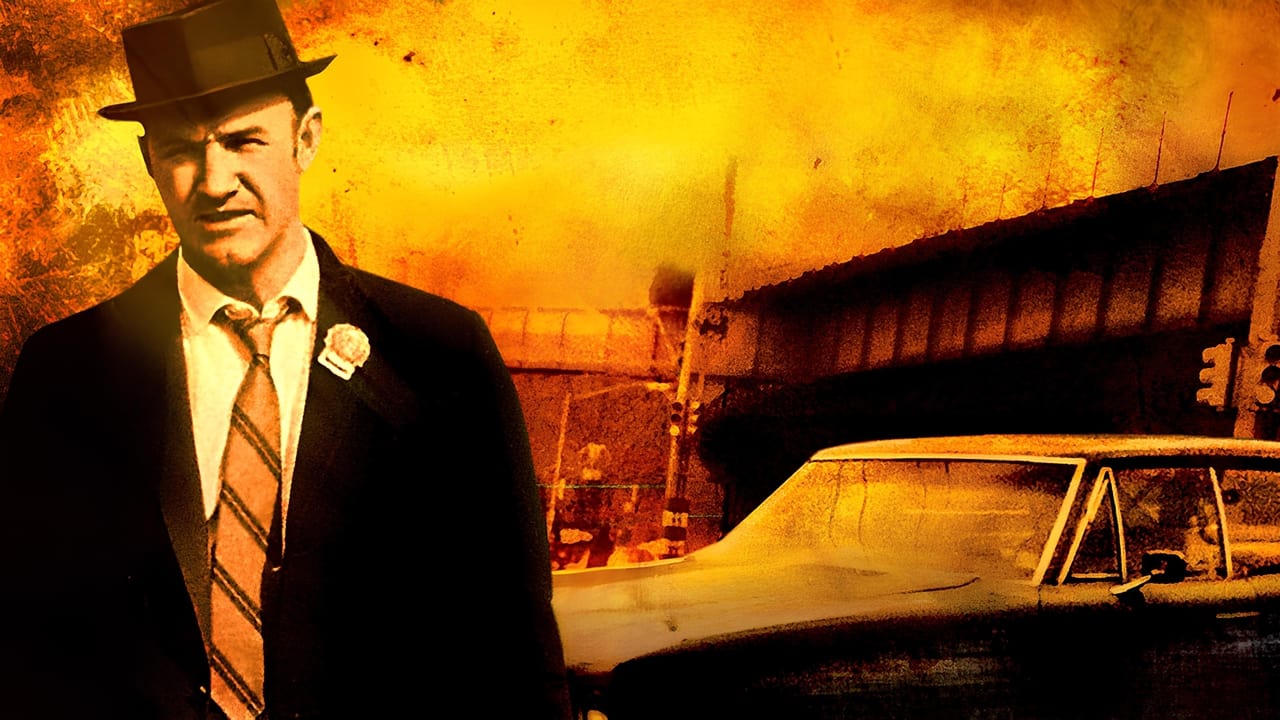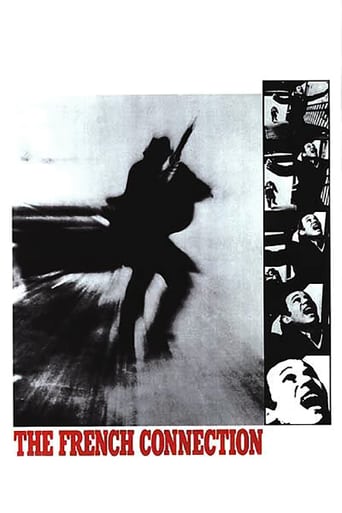

one of my absolute favorites!
... View MoreDid you people see the same film I saw?
... View MoreThis is a must-see and one of the best documentaries - and films - of this year.
... View MoreThis is a coming of age storyline that you've seen in one form or another for decades. It takes a truly unique voice to make yet another one worth watching.
... View MoreA great movie with amazing action sequences. The car chasing scene was the best scene in the movie. It makes me wonder of the effort taken by the crew to make the chase scene happen. I'm not sure how much of the climax really happened in real life, but it could have been handled in a better way and not let the main culprit escape.
... View MoreSimply put, this is well and truly one of the most overrated movies of all time.
... View MoreThe movie has gotten rave reviews since it came out and I never understood why. The 1970s were an amazing movie period, especially for big city, real life dramas and cop movies. But this does not hold up to the 1970s brilliance. The camera work is pedestrian and assembly line. The music is awkward. Ninety minutes of watching Hackman follow Sal around a very seedy NYC. I am suspicious that the movie was an elbow reaction to Blaxploitation movies of the time and particularly to Shaft. It has only white main characters and is brutally racist. This itself is odd being that the French were very ethnically progressive in the 1970s. Doyle seems indeed to be an anti-Shaft creation and all of the academy awards reinforce my belief that Hollywood was very threatened by Blaxploitation and by African Americans in general. The amazing acclaim it received from the academy seems to be overly eager in its praise and extremely over-rated to a suspicious degree. The car chase was just a marketing gimmick to validate the acclaim to mainstream audiences. But the plot is generally very weak. The racism is rampant and except for Hackman and Scheider, the acting is very limited. Just like the ridiculous nickname and the poorly worked bully act, the main character leads the viewers down several dead ends. I was genuinely rooting against Doyle the whole movie. Especially after the scene where his partner comes to his apartment to pick him up and finds that he had sleep with an underage girl. In fact, this movie reminds me of the many hundreds of weak NYC 1980s TV cop shows and I believe it probably was a template for them. The ending was just unbearably weak and unbelievable. It really should have been filmed in France and included some French actors, script and camera personnel. They also could have scored better music and utilized it more dramatically. There was some great music being made at this time. They probably didn't do this because, again, I believe it was only a Hollywood racist response to Blaxploitation and the mainstream success of Shaft. Cops employing obvious tails and staring into windows, bumbling, beating up minorities and living out of unmarked cop cars. It really just doesn't hold up anywhere. Unless you are looking for 1970s scenes of seedy Brooklyn, stay away from this one and watch Shaft instead.
... View MoreI hope they paid Hackman triple. He's on the move the whole way, whether running, driving, or trailing. This is the iconic film that really put the move in the movies. In 60- odd years of viewing, this may be the most kinetic slice of film I've seen. Anyway, after so many reviews, there's no need to echo consensus points. Instead, just one brief note of historical comparison.All in all, I can't help noticing what a contrast this cop film is with those of the post- war 40's and 50's. Unlike the wholesome cops of that censorship era, Hackman's Popeye Doyle is often a menace to society. He cares only about nailing the drug deal, and if that means running over hapless civilians, so be it. A nasty aspect of this driven behavior is whether it's that same trait that makes him an effective cop. He's certainly not one to punch a time clock. Then too, actor Hackman has that monomaniacal stare down pat that lends so much to his character.I'm glad the screenplay doesn't shrink back from Doyle's final encounter with Mulderig (Hickman). That warehouse episode shows the logical outcome of Doyle's obsession, and one that apparently goes unpunished, thereby reflecting on the Department as a whole. Then too, there's the final disposition of Alain (Rey), which never would have happened during the censorship regime. As we were taught then-- crime never, never pays. Also, cops during those Cold War years were portrayed almost universally as both ethical and professional. And if one strayed, there was some kind of comeuppance—not exactly the way the real world works.So hats off to Friedkin & Co. for bringing a riveting sense of dramatic realism to that traditionally air-brushed genre-- the cop show.
... View More